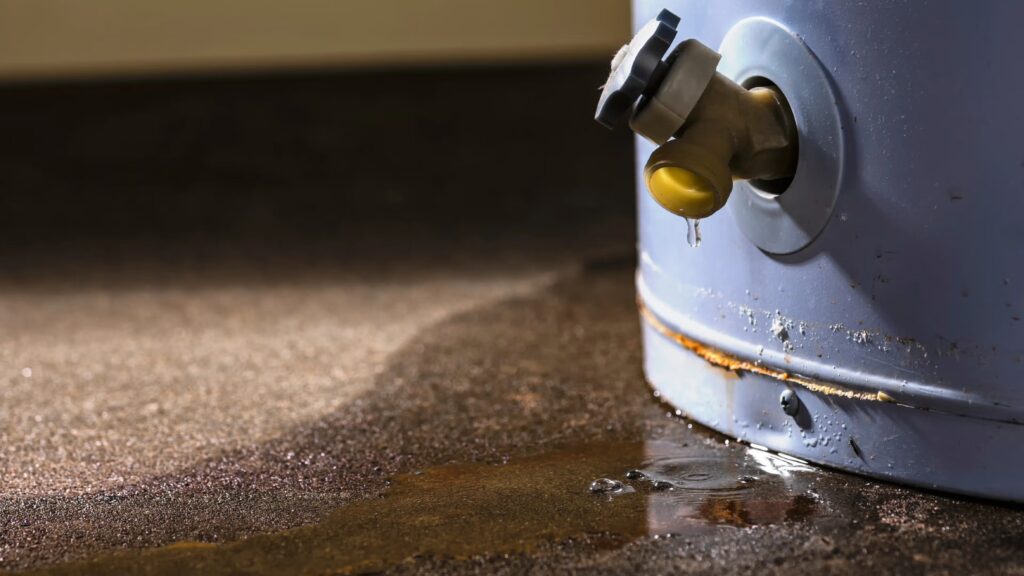Water service is something many of us take for granted until something goes wrong. The water service is responsible for delivering clean, treated water to your HVAC system, which is essential for efficient operation. In this blog post, we’ll explore the importance of water service repairs, common water service issues, and strategies to address them effectively.
Why Timely Repairs Matter?
System Efficiency: A well-maintained water service ensures your HVAC system operates efficiently. When your system receives clean, properly treated water, it’s less likely to suffer from scale buildup, corrosion, or other issues that can decrease its performance.
Cost Savings: A malfunctioning water service can lead to increased energy consumption and, consequently, higher utility bills. Regular maintenance and timely repairs can help you save money in the long run.
Equipment Longevity: Water service issues can significantly impact the lifespan of your HVAC equipment. By addressing these problems promptly, you can extend the life of your system and delay the need for costly replacements.
Common Water Service Issues
Leaks
Leaking pipes can waste water, damage your property, and decrease water pressure. Water stains, damp spots on walls or ceilings, an unexplained increase in water bills, and the sound of water dripping are signs of leaking pipes.
Pressure Problems
Insufficient or erratic water pressure can affect your HVAC system’s performance. Low water pressure can result in reduced heating or cooling capacity, while high pressure can cause damage to the system. Signs of this include inadequate flow from faucets and showerheads, reduced performance of washing machines and dishwashers, and noticeable changes in water pressure throughout the house.
Water Contamination
Contaminated water can harm your HVAC system and pose health risks to you and your family. Water service repairs are essential to ensure that your HVAC system receives clean, treated water. Foul odors, unusual tastes, discoloration, or changes in the clarity of your tap water may suggest water contamination.
Hard Water Scaling
Hard water contains minerals like calcium and magnesium that can accumulate in the pipes, leading to scaling. Scaling can restrict water flow and reduce heat transfer efficiency in your HVAC system. Reduced water flow, white deposits on fixtures, and decreased heating or cooling system efficiency can be indicative of hard water scaling.
Clogged Toilets/Pipes
Toilet and pipe clogs can cause backups and blockages in your water service system, leading to slow drains and potential overflows. Water pooling in sinks or tubs, unpleasant odors from drains, and gurgling noises when water goes down the drain are signs of slow drains.
Noisy Pipes
Noisy pipes can be disruptive, and water hammer can cause damage to pipes and fixtures. Banging, clanging, or vibrating sounds in the plumbing system, especially when water is turned on or off, and general noisy pipes are indicative of a larger piping issue.
Strategies and Tips for Addressing Water Service Issues
Regular Maintenance
Schedule regular inspections and maintenance for your water service system. This includes checking for leaks, testing water quality, and cleaning or replacing filters.
Water Softeners
Install a water softener to reduce hard water scaling. Softened water is gentler on your HVAC system and prevents mineral buildup.
Pipe Insulation
Properly insulate pipes to prevent corrosion and minimize heat loss. Insulation can extend the lifespan of your water service system and improve energy efficiency.
Pressure Regulation
Invest in a pressure regulation system to maintain consistent water pressure. This prevents damage to your HVAC equipment and ensures optimal performance.
Water Filtration
Install a water filtration system to remove contaminants and impurities from the water supply. This not only benefits your HVAC system but also provides clean and safe water for your household.
Timely Repairs
If you notice any water service issues, such as leaks, low water pressure, or strange noises, address them promptly. Delaying repairs can lead to more significant problems and increased repair costs.

